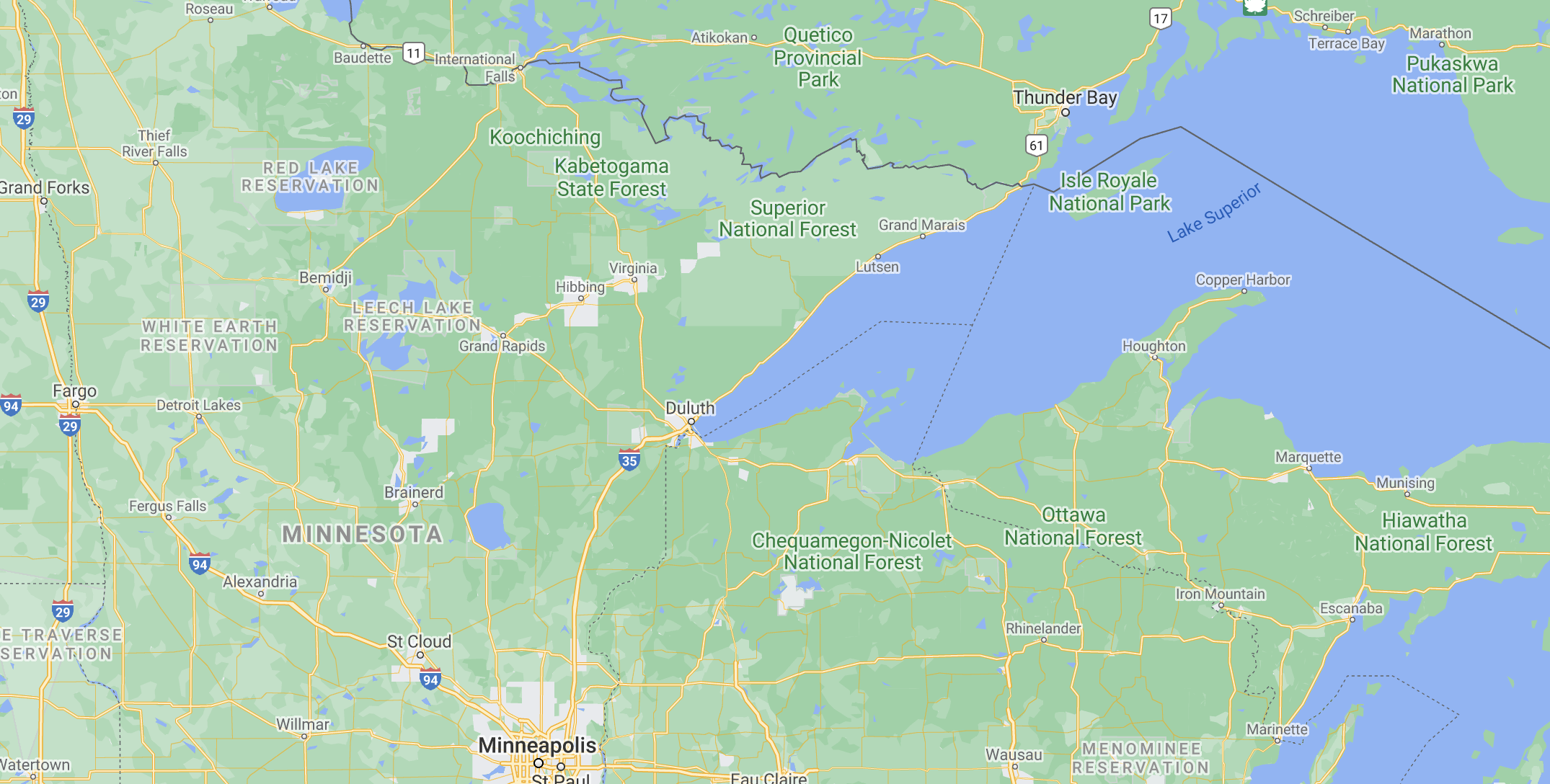
The Department of Interior’s recent decision to cancel two hardrock mineral leases on public lands upstream of the Boundary Waters Canoe Area Wilderness was widely supported by hunters and anglers. It was also in line with an agency process supported by our community. But this is just the first step toward permanent protection of these essential resources. Here’s what you need to know about what comes next.
First, a quick review of what’s at stake: The Boundary Waters, the most visited Wilderness Area in the country, is made up of more than 1,100 lakes and 2,000 designated overnight campsites all connected by rivers, streams, and portage trails along Minnesota’s northern border. The 1.1-million-acre Wilderness Area lies within the Superior National Forest, the largest contiguous forest in the eastern region of the United States.
The waters within hold high quality habitat for walleyes, smallmouth bass, northern pike, and lake trout. In the face of a changing climate, the area offers some of the clearest, coldest, and deepest waters in all of the boreal forest open to the public for fishing, camping, and hunting. Ruffed grouse, whitetail deer, moose, and migratory birds also frequent the lakes and rivers in and around the BWCAW, an area directly adjacent to Canada’s 1.2-million-acre Quetico Provincial Park and in the same watershed as Minnesota’s 220,000-acre Voyageurs National Park.
Last week, the Biden Administration decided to mitigate some of the threats to these resources by canceling two federal mineral leases upstream of the Boundary Waters. This rectified a process that would have endangered habitat and outdoor recreation access downstream. The action was in keeping with the science-based, public-facing approach we have advocated for since 2018, when the TRCP and its partners called on federal agencies and decision-makers for a “stop and study” approach to this new type of mining in the region.
But future leases could be considered unless Congress passes legislation to permanently protect the Boundary Waters. Further, there is still a need for more evaluation of the environmental impacts of hardrock mining, especially if we hope to put this idea—and the risks to fish and wildlife—to rest for good.
This is why federal agencies are currently completing a study that could put a moratorium on any new hardrock leasing in 225,378 acres of the surrounding watershed of the BWCAW, putting that acreage off-limits, as well. While the study is underway, the Bureau of Land Management has initiated a two-year segregation of new federal mineral leases within the proposed withdrawal area.
Importantly, during a 90-day comment period concluded on January 19, 2022, sportsmen and sportswomen overwhelmingly urged federal agencies to take action to protect the watershed of the BWCAW. Thousands of business owners, hunters, anglers, and countless others in the outdoor community spoke in favor of the withdrawal because tourism and jobs in the local outdoor-recreation-based economy depend on the Boundary Waters.
There will be other opportunities for the public to weigh in as the study progresses, and at the conclusion we hope to see federal agencies commit to a 20-year moratorium of new hardrock mineral leasing in that area of the Superior National Forest. The Boundary Waters is a unique landscape and critical part of the American Wilderness system that is deserving of permanent protection from water pollution and impacts to habitat and access downstream. Federal agencies have the discretion to set the study area aside from new leasing for up to 20 years after gathering public input and scientific data that inform such a decision.
In the end, the Boundary Waters can only be permanently protected from this type of mining by H.R. 2794, the Boundary Waters Wilderness Protection and Pollution Prevention Act. After the current moratorium ends and federal agencies enact a longer-term mineral withdrawal order, an act of Congress must be signed into law to permanently declare the area off-limits from future hardrock mineral leasing. This would permanently reinforce the decision by federal agencies to set the 225,000-acre area of the Superior National Forest aside from this kind of leasing for up to a 20-year period.
The legislation has been introduced in the U.S. House of Representatives by Representative Betty McCollum (D-Minn.). Federal agencies have begun to right past agency decisions to renew hardrock mining leases in the watershed, and it is up to elected officials to seal the deal and secure this critical habitat and bucket-list paddling, fishing, and hunting destination for future generations.
Learn more and sign up for updates on this issue at SportsmenBWCA.org.
Spencer Shaver is the conservation director for Sportsmen for the Boundary Waters . He is a lifelong hunter and fisherman, a graduate of the University of Minnesota’s environmental science, policy, and management program, and has guided Boundary Waters canoe trips since 2014.




